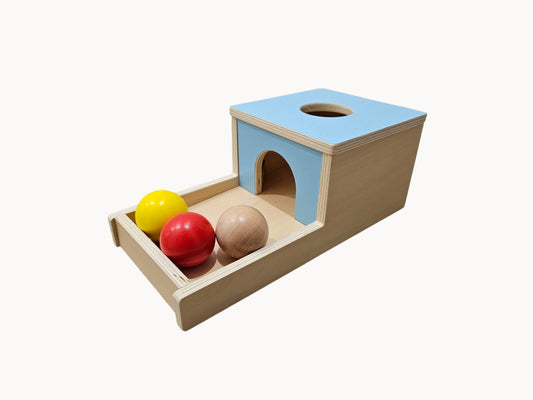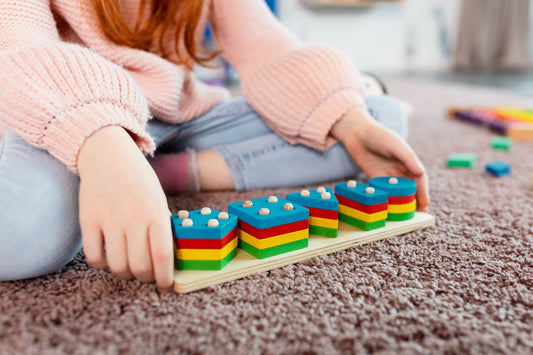
If it's Wooden, it's Montessori, Right!?
Share
In many Montessori homes, you will notice a clear absence of plastic toys. Instead, shelves are thoughtfully filled with materials made from wood, metal, and even glass. But why does this matter? And does a toy being wooden automatically make it Montessori?
Interestingly, Maria Montessori never explicitly banned plastic. Her focus was not on strict rules about materials, but rather on offering children beautiful, purposeful, and sensorially rich experiences. She believed that a child should live in an environment of beauty, where simplicity, order, and authenticity help support concentration and calm.
Natural materials like wood and metal offer something plastic simply cannot: a real sensory experience. Their weight, temperature, texture, and even smell engage the child’s senses in a way that flashing lights and brightly coloured plastic cannot. Montessori materials are intentionally designed to be quiet and grounded, helping the child focus, explore deeply, and build independence without unnecessary stimulation.
That said, just because something is made of wood does not automatically make it Montessori. A toy version of a fruit or a plastic knife, even if wooden, does not carry the same learning value as real-life experiences. In Montessori environments, children are offered real tools and real tasks, learning to wash, peel, and cut actual fruit using age-appropriate utensils. These authentic experiences develop not only fine motor skills but also a deep sense of competence and connection to the real world.
In my own home, I do include some plastic toys such as magnetic tiles, which encourage open-ended creativity, spatial reasoning, and problem solving. When thoughtfully chosen, some plastic items can still support Montessori principles of hands-on, self-directed learning.
However, when selecting materials for our shelves, I prioritise natural, sensorial materials that invite calm, concentration, and meaningful exploration. It is not about perfection, but about making intentional choices that honour the child’s development.


